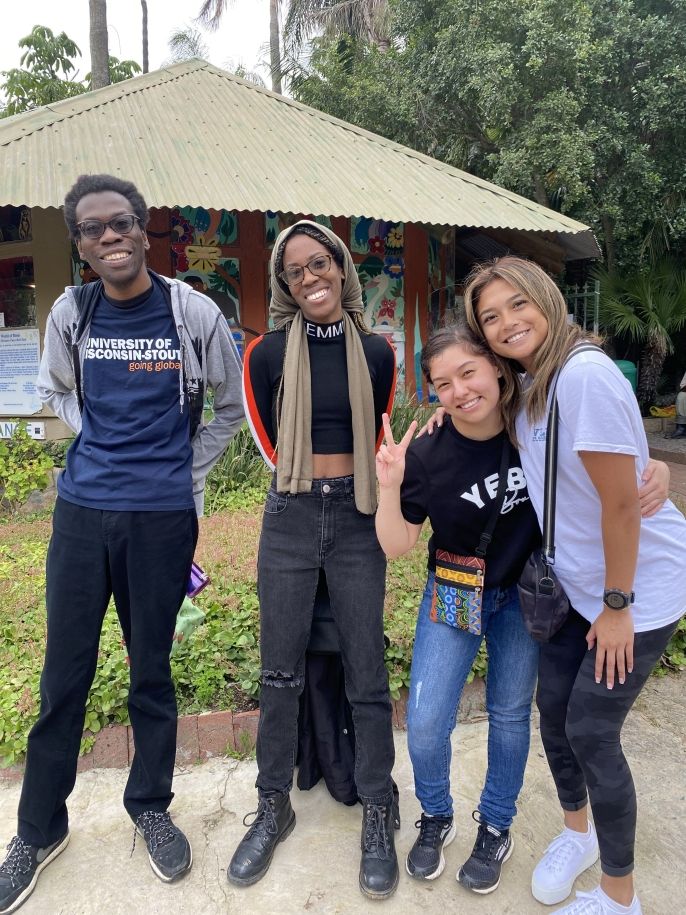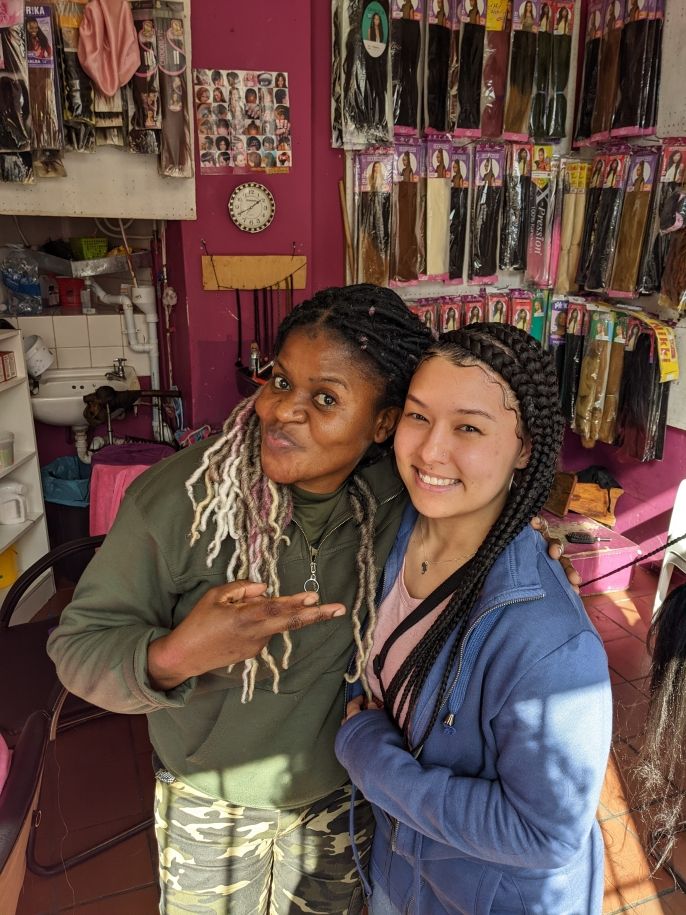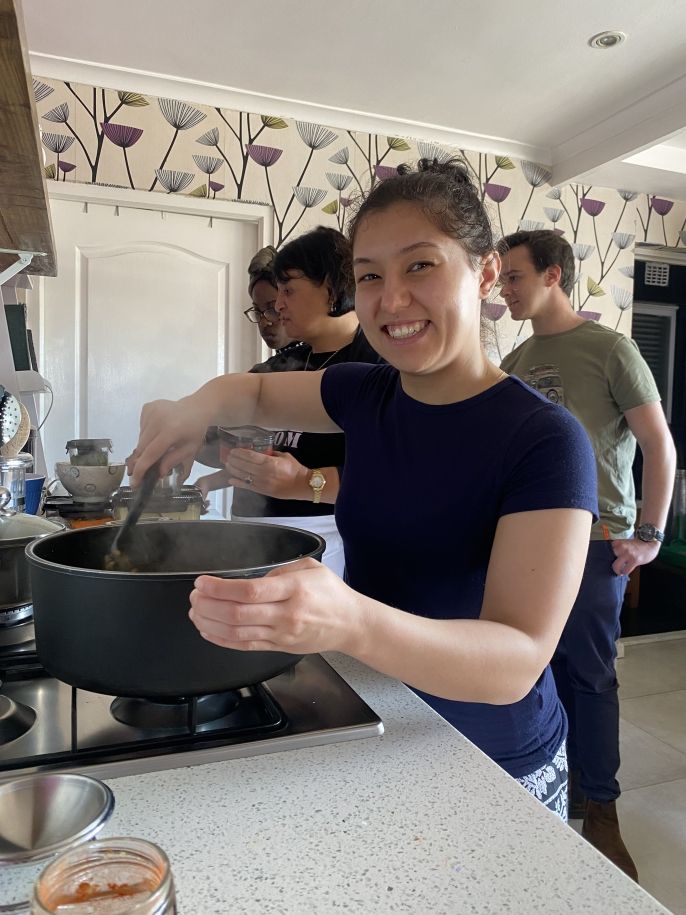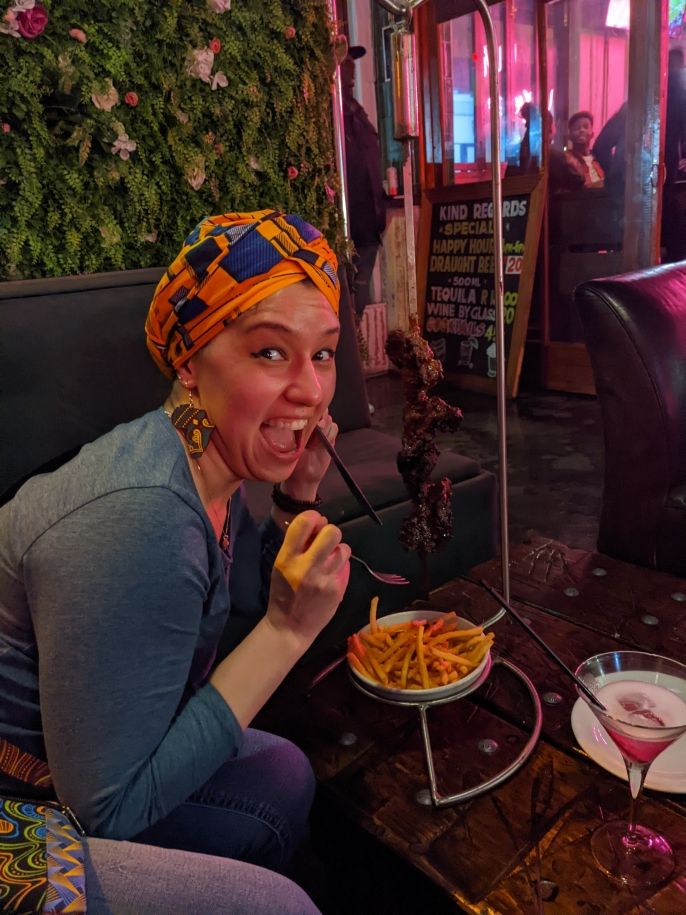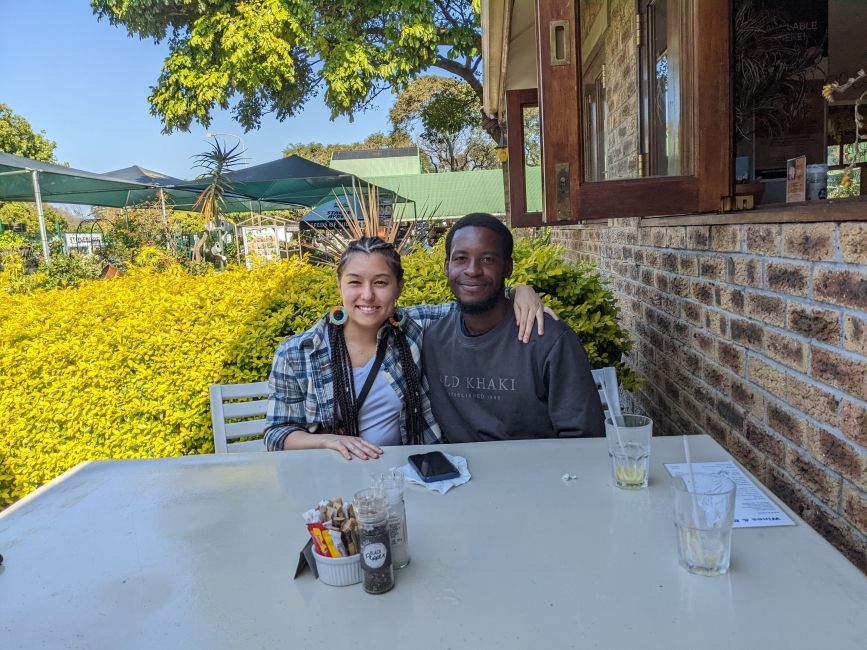Three Ways to be 'Local and Lekker'
Authored by Ava Meyers (she/her)
(Ava majors in International Studies with an African focus and spent 3 months in Cape Town as a student in Summer Session I, II and III.)
Coming to Cape Town as an American comes with stereotypes that, if you engage with anyone in the local communities, are bound to come up at some point. These stereotypes, both good and bad, can make it a little difficult to have an authentic experience while staying here. Luckily, there are ways to push past these stereotypes and represent ourselves while still connecting with local people and cultures. Here are three American stereotypes I encountered while living in Cape Town, and some tips on how to confront them.
Wealth. Many South Africans see American peers as rich, and that can be because of a number of factors. The US dollar is currently much stronger than the South African rand, so we can spend a few hundred rands knowing that our bank accounts will be fine. Most Americans who come to Cape Town do so for tourism and often book activities that are priced for them, not for locals, meaning we do more expensive activities than are generally the norm. Hollywood and American mass media reach audiences all over the world, including here in South Africa, and for some South Africans that is their main source of information about American culture.
What to do about it? Just because you have money doesn’t mean that you have to use it. There are plenty of free or very inexpensive things to do in Cape Town that can help us minimize class barriers between us and locals. We can learn a lot from people here about how to have fun and meaningful experiences without focusing so much on material goods! Be honest with your new friends here, but don’t feel like you have to tell them everything. It’s disingenuous to pretend that we don’t have monetary privileges that others may not have, but that privilege doesn’t need to be everyone’s business. If you are willing to leave it behind sometimes, you’ll probably be able to connect with locals much more easily.
Influence. I once heard someone say that when an American speaks, everyone else listens. In a sense, it is true that American culture and society inspire many global movements and trends. Unfortunately, the flip side to this is that many Americans, consciously or not, adopt the attitude that they are untouchable. Many Americans feel confident flaunting their own cultural norms. It’s easy to think that we’re the trendiest dresser, the most interesting person and that everything we say and do is correct. This can turn a lot of local South Africans off from us, though. No one wants to have someone else come into their home and explain the way the world should work.
How to deal with it? There are plenty of South Africans who are interested in American culture and society! I once got to speak to someone at a local spot who was very excited to speak to Americans about the Black Lives Matter movement, which spread all the way here to South Africa. But let’s not forget – we came here to learn. We’re only here temporarily, so we might as well use that time to at least try to explore South African perspectives, which doesn’t happen when you’re talking more than listening. That said, there’s nothing wrong with sharing our American perspectives with people here either, but maybe don’t assume that people want to learn from us unless they ask. While we’re here, it’s time for us to learn, even if it’s only for our time spent here.
All Americans think the same way. American news is consumed all over the world, just like our movies and TV shows are. It can be easy for people in other parts of the world besides the States to associate us, individually, with things our country says and does. I’ve been asked many times while I was here about our president, changing laws, or statements made by political officials or celebrities. Because some people here might hear about American current events more often than they get to talk to American people about them, they might not know about sides of the story that don’t get covered, which makes it hard to get a feeling for how diverse Americans can really be.
How to handle this? As an American abroad, we are automatically put in the position of acting like mini ambassadors to our country. But just as diverse as the United States is, Cape Town is incredibly diverse as well! People will generally understand if you explain to them that Americans exist in many different shapes, sizes, colors, religions, professions, levels of education, economic classes, and socio-political beliefs. It’s important to speak about our experiences as individuals. Just like someone I meet here doesn’t represent all of South Africa, I can’t be expected to represent all of America – but I can represent myself, and I can give context as to why other Americans might feel the same or differently than I do.
Related Posts

EAT, DRINK, EXPLORE: CAPE TOWN
BEST FOOD TO EAT IN CAPE TOWN If you’re looking to pinpoint South Africa’s national dish, here’s a helpful tip: there isn’t one. Cape Town’s multi-cultural heritage boasts British, French... keep reading
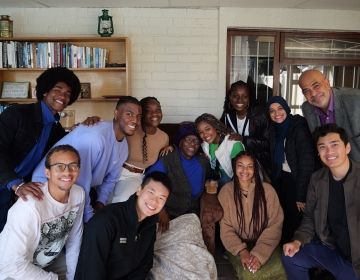
Reflecting on South Africa as a Frederick Douglass Global Fellow
By: Sam Li Stepping off the plane in Cape Town felt like stepping into a whirlwind of vibrant energy, complex history, and breathtaking landscapes. This wasn't just any summer adventure... keep reading
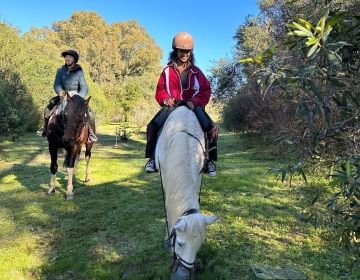
Equestrian Getaway in Cape Town
Authored by Haroni Sahilu (she/her) (Haroni is a rising senior at Arizona State University, majoring in Philosophy and Justice Studies. During her time in Cape Town, she hopes to aid... keep reading
